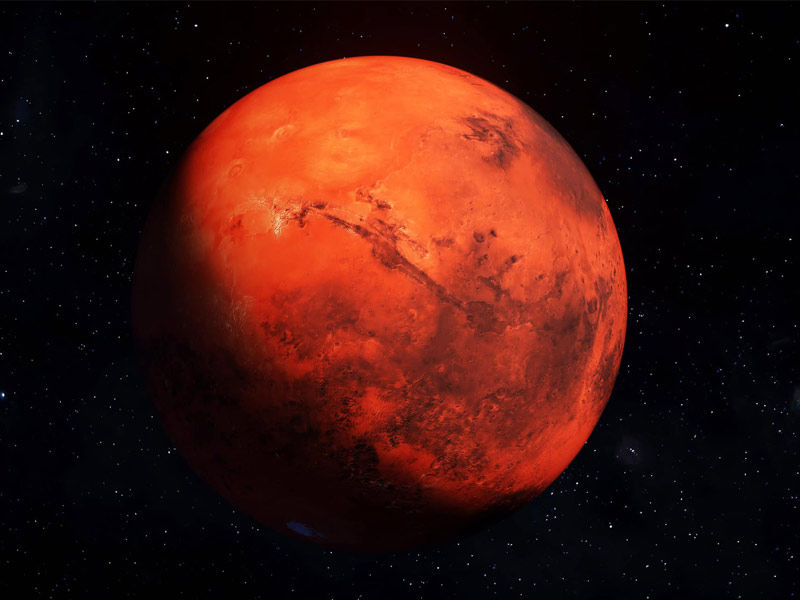Scientists have discovered that Mars is spinning faster and that each day is progressively getting a little bit shorter, which has baffled them. The results, which were reported in Nature, were based on information from NASA’s InSight Mars lander, which ran out of power in December 2022 after four years of operation.
According to NASA, changes in a planet’s mass can cause it to accelerate, rather like an ice skater bringing their arms in while spinning with their arms outstretched.
The changes are minor, as those measures would indicate, but the scientists who saw them are unsure of what is causing them.
Ice buildup on the planet’s polar caps or post-glacial rebound, in which land masses rise after being buried by ice, are two potential explanations.

According to NASA, such changes in a planet’s mass can lead it to accelerate, something like an ice skater spinning while bringing their arms in.
Scientists used data from NASA’s InSight Mars lander, which worked on the planet’s surface for four years before running out of power in December, to identify the change in spin speed.
The differences were “just a few tens of centimeters over a Martian year,” according to Sebastien Le Maistre, principal author of an article describing the results in Nature magazine.
“It takes a very long time and a lot of data to accumulate before we can even see these variations,” he continued.
The study looked at information from InSight’s initial 900 days on Mars.
Scientists were able to collect data thanks to the lander’s superior radio technology and NASA’s Deep Space Network, which is an international network of huge radio antennae back on Earth.
Also read: Apple and Samsung to Invest in SoftBank’s Arm at IPO
Using the antennae, they would send a radio signal to the lander, which would then be reflected to Earth.
To calculate how quickly Mars rotates, researchers would examine minute variations in frequency when they received the reflected signal.
In terms of the data InSight had gathered, Mr. Le Maistre claimed that the “historic experiment” was merely the tip of the iceberg.
There is “a lot to reveal” still, and years will pass as more data is gathered.





























